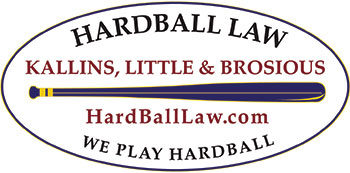Let’s face it, the last thing you expect when you are heading out the door to go to work, school, or run errands is to be involved in a vehicle accident. Unfortunately, like every state, Florida experiences a number of car accidents every single day. During 2020, there were in excess of 340,000 accidents on our roadways. These crashes resulted in more than 3,300 deaths and more than 212,000 injuries. Victims need to know what they should do if they are involved in a car accident. These six steps can help you protect your rights following an accident which was not your fault.
1. Take steps to protect yourself and those involved
The most important thing you will do following a car accident is to ensure your own physical safety and those of any other person involved in the accident. Whenever possible, get your vehicle out of the line of traffic and to the side of the road. If you are unable to physically do this because your vehicle is too seriously damaged, or your injuries will not allow it, contact police immediately.
2. Notification to law enforcement and emergency services
Any Florida car accident which results in more than $500 in damages must be reported to police. Contact the local police, sheriff, or the Florida Highway Patrol immediately. Chances are, even a minor fender will cause this amount of damage. When contacting law enforcement, make sure you let them know if anyone has suffered an injury and they will notify emergency services.
Once law enforcement has arrived at the scene, be cautious: Do not jeopardize your legal rights by indicating you may have been partially at fault for the vehicle accident. Regardless of who you are speaking to, avoid stating “I’m sorry, I did not see him, or using any similar language”. This could prevent you from seeking damages if your insurance coverage is insufficient.
3. Obtain contact information from other drivers and witnesses
To protect yourself legally, you should obtain the name, address, and telephone number of the other driver as well as any witnesses to the accident. In addition, you should obtain the driver’s license number, registration, and insurance information for any other drivers who were involved in the accident.
4. Seek medical attention regardless of how you feel
One of the most understated facts of a car accident is how we react physically. Your body will immediately attempt to protect you from pain, releasing massive amounts of epinephrine. This will mask any pain your body may be suffering. Make sure you go to the nearest urgent care or emergency room, let them know you were involved in a vehicle accident, and have yourself checked for injuries.
5. Notify your insurance company
Florida is a no-fault insurance state. Every driver on Florida roadways must maintain a minimum level of coverage in the event they are involved in a car accident. When speaking with the insurance company, let them know the date, time, and location of the accident. Avoid discussing any of the particulars of the accident until you have spoken with a Florida car accident lawyer.
6. Contact a personal injury attorney
Once you have notified your insurance company about the accident and provided them with the necessary information, you should contact a personal injury attorney to schedule a free consultation. Remember, while Florida is a no-fault state, you may still have the option of filing a claim against the other driver if your injuries result in:
- An injury which may be permanent
- Serious scars or disfigurement
- Loss of a bodily function or organ
Victims of accidents should never attempt to negotiate with insurance company adjusters on their own. They are specifically trained to avoid paying any more than necessary on claims and they will take advantage of the fact you are out of work and are facing a financial crisis following a Florida car accident.
Contacting a personal injury lawyer allows you to protect your legal options and avoid falling into situations where you may say something which damages your ability to recover damages. A Florida personal injury attorney can help you understand your legal rights, as well as your legal options.

